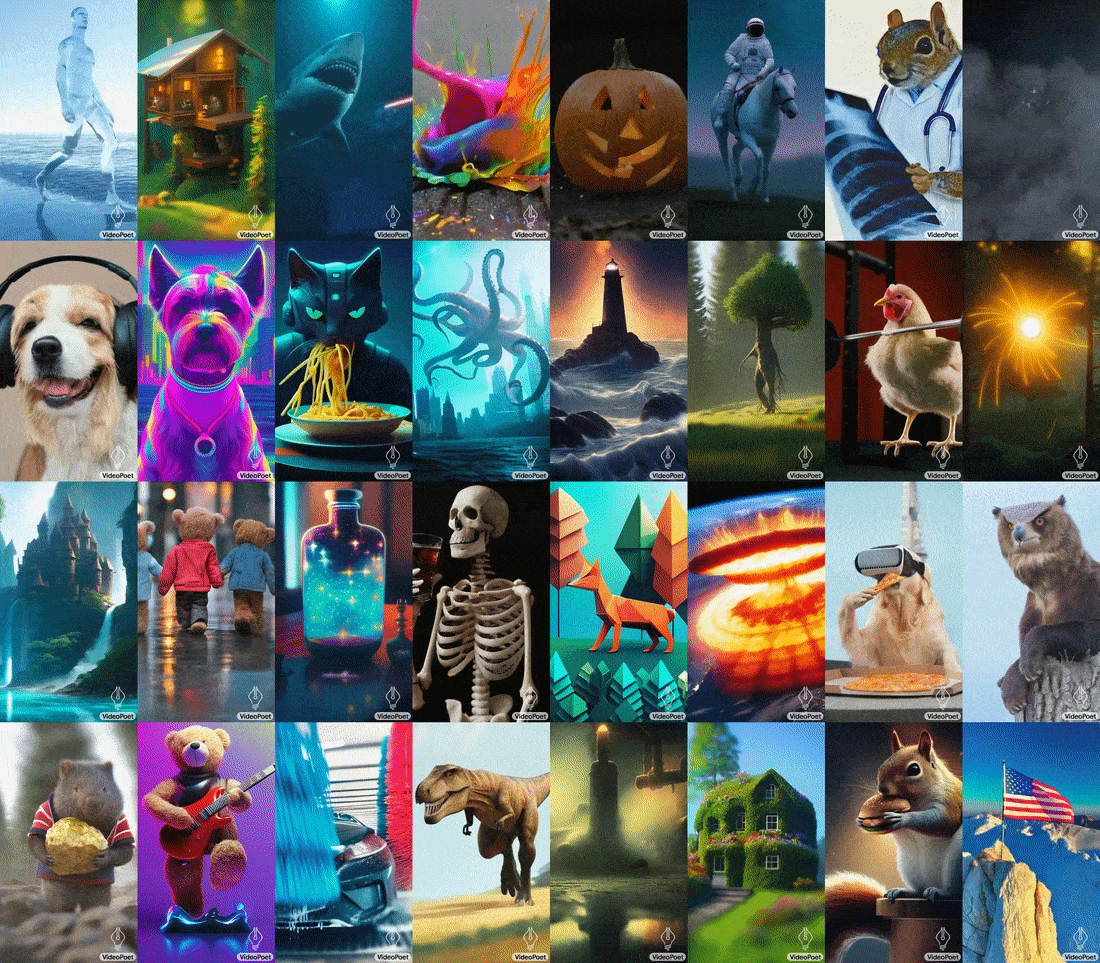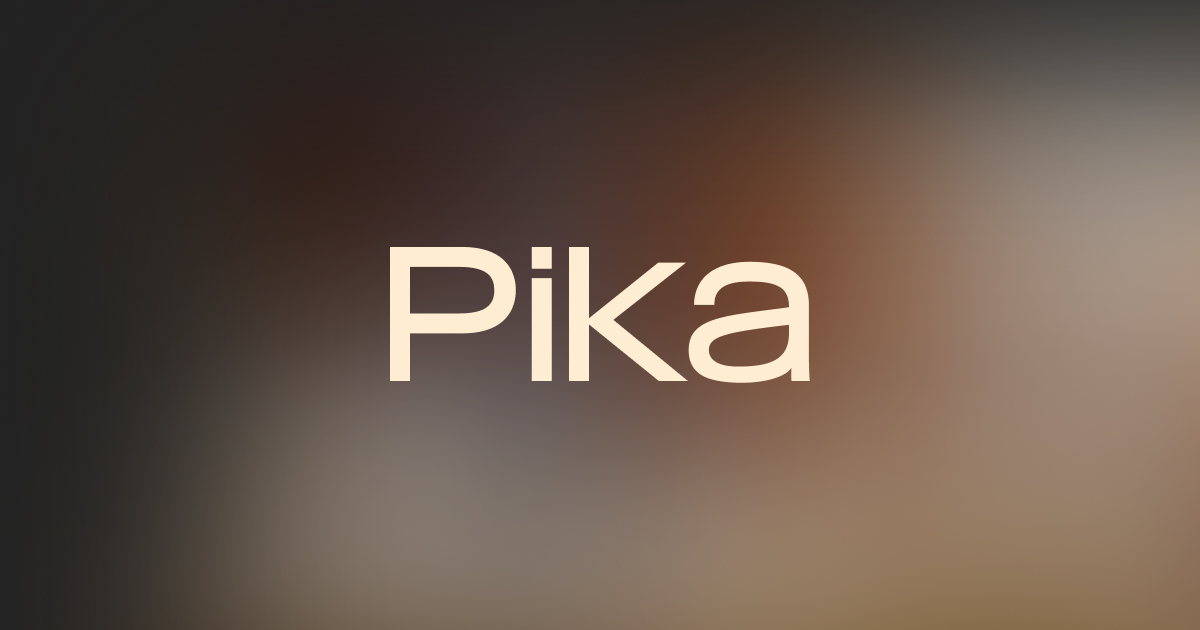
Welcome, AI enthusiasts
Google has unveiled a significant new update: VideoPoet, a new large language model (LLM) for video generation that redefines the space and excels where others fall short. Also, it's now possible to revolutionize your music creation with the collaboration of Microsoft Copilot and GenAI's Suno app. Bill Gates shares his inspiring vision on how AI can be a game-changer in solving the world's most pressing challenges, while Microsoft and TomTom share the future of navigation with a groundbreaking voice assistant. Let's dive in!
In today’s insights:
Google's Game-Changing VideoPoet is set to Surpass Rivals
Microsoft Copilot's New Musical Twist
Bill Gates Optimistic on AI's Global Impact
Microsoft & TomTom's Game-Changing Voice Assistant
Read time: 5 minutes
🗞 LATEST DEVELOPMENTS
Evolving AI: Google's VideoPoet redefines video generation, and it looks better than RunwayML, Stable Video Diffusion, Pika, and the most recent ‘Animate Anyone’.
Key Points:
VideoPoet introduces a unified LLM for diverse video tasks.
Outperforms RunwayML, Stable Video Diffusion, and others in motion coherence and text fidelity.
Skepticism remains about its real-world application.
Details:
Google's VideoPoet, a cutting-edge LLM for video generation, promises a leap in AI-driven video tech. Unlike segmented models, it incorporates text-to-video, image-to-video, video stylisation, and more within one framework. This new model differentiates itself by integrating multiple video generation capabilities within a single LLM framework. VideoPoet's edge lies in generating more life-like, fluid motions compared to its predecessors, marking a significant advancement in the field.
Our Thoughts:
While VideoPoet stands out in the AI video generation realm, its real-world efficiency sparks debate. Can it move beyond impressive demos to practical, everyday use? This skepticism, rooted in its reliance on specific prompting techniques, casts a shadow over its potential. Yet, its advancements in video AI tech can't be ignored, hinting at a future where AI seamlessly translates our imaginations into dynamic visual realities.
MICROSOFT
🎵 Microsoft Copilot's New Musical Twist
Evolving AI: Microsoft Copilot integrates with Suno for song creation.
Key Points:
Microsoft Copilot now composes music via Suno integration.
Users prompt Copilot for a song, and Suno generates complete tracks.
Access the feature via Microsoft Edge and Copilot website.
Details:
Microsoft Copilot has teamed up with GenAI music app Suno, allowing users to create songs through simple prompts. By typing a request like "Create a pop song about family adventures," users can produce full songs with lyrics and music. This innovation makes music creation accessible to all, enhancing creative possibilities.
Why This Matters:
This collaboration marks a significant step in AI's role in art and creativity. While broadening the horizons of music creation, it raises important ethical and legal questions about AI's use of existing musical works and artist compensation. The evolving landscape of AI in music challenges traditional notions of creativity and ownership, pointing to a future where art and technology increasingly intersect.
BILL GATES
🤖 Bill Gates Optimistic on AI's Global Impact
Evolving AI: Bill Gates expresses optimism about AI's potential in addressing global challenges in education, health, and more.
Key Points:
Gates highlights AI's potential to revolutionize internet usage.
Future AI-driven personal assistants could replace routine online tasks.
Possibility of AI-powered robots replacing blue-collar jobs.
Gates focuses on AI's potential for addressing critical humanitarian issues.
Details:
Bill Gates, the visionary co-founder of Microsoft, has recently shared his insights on the transformative potential of Artificial Intelligence (AI). While acknowledging the disruptive changes AI could bring, including the replacement of current internet giants and the introduction of worker-droids, Gates chooses to emphasize the positive impacts AI could have on global challenges. His belief in AI-driven personal assistants that can efficiently manage mundane tasks heralds a significant shift in how we interact with the internet. Moreover, Gates envisions AI-powered humanoid robots becoming more cost-effective than human labor in certain sectors.
However, it's the altruistic applications of AI that truly capture Gates' imagination. He foresees AI accelerating innovations, particularly in fields like education and health, where resource optimization is crucial. Drawing from his extensive experience in philanthropy and technology, Gates sees AI as a key driver in creating impactful solutions to some of the world's most pressing issues.
Why It Matters:
Bill Gates' perspective on AI underscores its dual nature: while it poses challenges to existing structures, it also holds immense promise for societal advancement. His focus on the altruistic potential of AI invites us to consider how this technology can be harnessed to create a more equitable and efficient world. In a time where resource allocation is critical, AI's role in maximizing impact could be a game-changer. Gates' optimism serves as a reminder of the importance of directing technological advancements towards the greater good.
MICROSOFT & TOMTOM
🚗 Microsoft & TomTom's Game-Changing Voice Assistant
Evolving AI: Microsoft and TomTom launch a revolutionary AI voice assistant, challenging the dominance of Google Assistant and Siri in the automotive sector.
Key Points:
Microsoft's strategic move in the car tech industry.
Advanced AI-powered voice assistant developed with TomTom.
Enhanced conversational capabilities and integration.
Details:
Microsoft, traditionally known for its software prowess, is now diving into the automotive technology sphere. Collaborating with TomTom, they've developed a cutting-edge voice assistant, leveraging AI to surpass the functionalities of Google Assistant and Siri. This assistant, running on Microsoft Azure OpenAI Service, promises a conversational experience far beyond basic voice commands. It integrates deeply with car systems, allowing drivers to perform complex tasks like setting navigation, adjusting climate, and controlling infotainment with natural language. This marks a significant shift in how drivers interact with technology, moving towards a more intuitive, human-like experience.
Our Thoughts:
Microsoft and TomTom's venture is more than just tech advancement; it's a strategic move reshaping the automotive industry's future. By providing a more intuitive and integrated user experience, they challenge existing giants like Google and Apple, potentially altering the landscape of in-car technology. This innovation not only enhances driver convenience but also signifies a major step in AI evolution and its practical application. Could this be the dawn of a new era in automotive AI?
💡 Tip of the Day
You might recall the groundbreaking new tool from Pika Labs that was introduced a few weeks ago, essentially a ChatGPT for video.
They are now starting to allow people from the waitlist to access it, all at no cost! So, visit the link to explore this amazing new AI tool.
🎯 SNAPSHOTS
Direct links to relevant AI articles.
🌍 Google Gemini: Research finds it’s not as good as GPT-3.5 Turbo.
🎮 Ludo.ai: Introducing text-to-video generator for game devs.
📈 Trending AI Tools
📺 Creatify - Take a product URL and turn in into a video (link)
👩💻 Forefront AI - AI assistant for work (link)
🍴 MealsAI - Create recipes instantly (link)
✨ SuperBooking - Book your favorite services (link)
🎭 Face Swap by Akoo l- Swap faces in photos and videos, at studio quality (link)
📊 Sheet AI - Put AI in your Google Sheets (link)
🧪 Quiz Gecko - AI online test and quiz maker (link)





